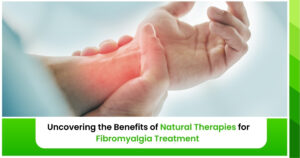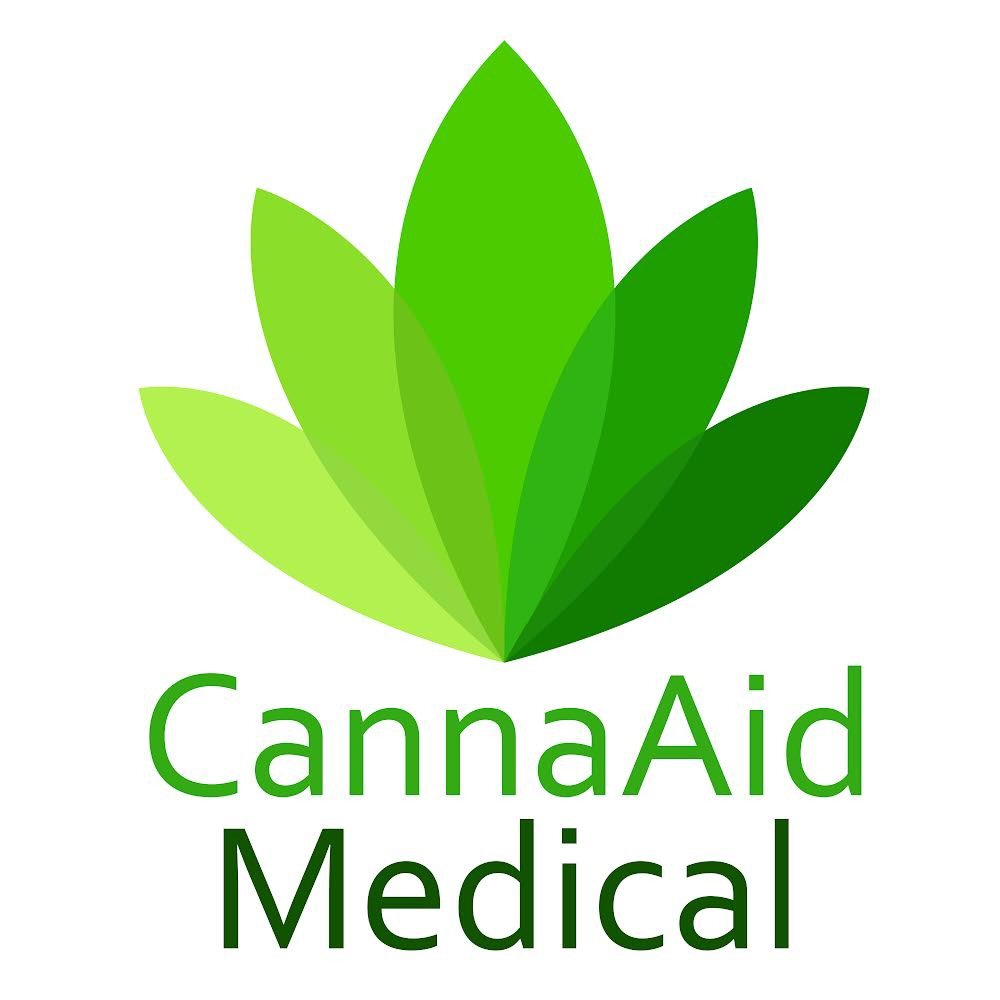Medicinal Cannabis for ADHD: Benefits, Risks, and What to Consider
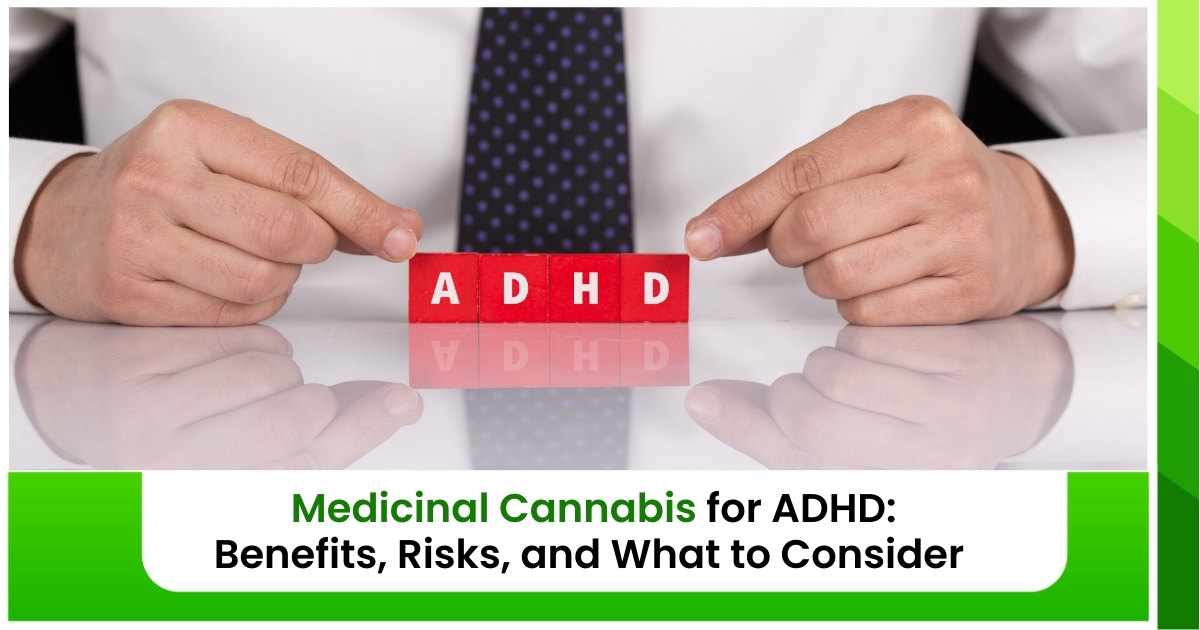
Do you often have trouble focusing, are fidgety or have impulsive tendencies? All of these can be signs of ADHD. Attention Deficit Hyperactivity Disorder, or ADHD, is a complex condition that brings with it a whirlwind of challenges, and dealing with them isn’t easy.
The cornerstone of ADHD treatment has always been traditional medications, but they don’t always fit every patient’s needs. Cannabis for medicinal purposes enters the picture here. Once a controversial topic, medical cannabis is now gaining attention as a potential alternative for managing ADHD symptoms. But does it truly offer a viable solution?
In today’s blog, let’s explore the role medicinal cannabis could play in treating ADHD, examining its possible benefits, weighing the risks, and considering what you need to know before deciding if it is right for you.
What is ADHD?
ADHD is a neurodevelopmental condition that affects both children and adults and is marked by ongoing patterns of inattention, hyperactivity, and impulsivity that disrupt daily activities.
The condition can present as predominantly inattentive, predominantly hyperactive-impulsive, or a combination of both and people with ADHD often struggle to focus, stay organized, or manage impulses but not always.
There are many possible causes of ADHD, including genetics, brain function, and environmental factors. Treatments for ADHD include behavioural therapies, lifestyle changes, and ADHD medications.
Signs and symptoms of ADHD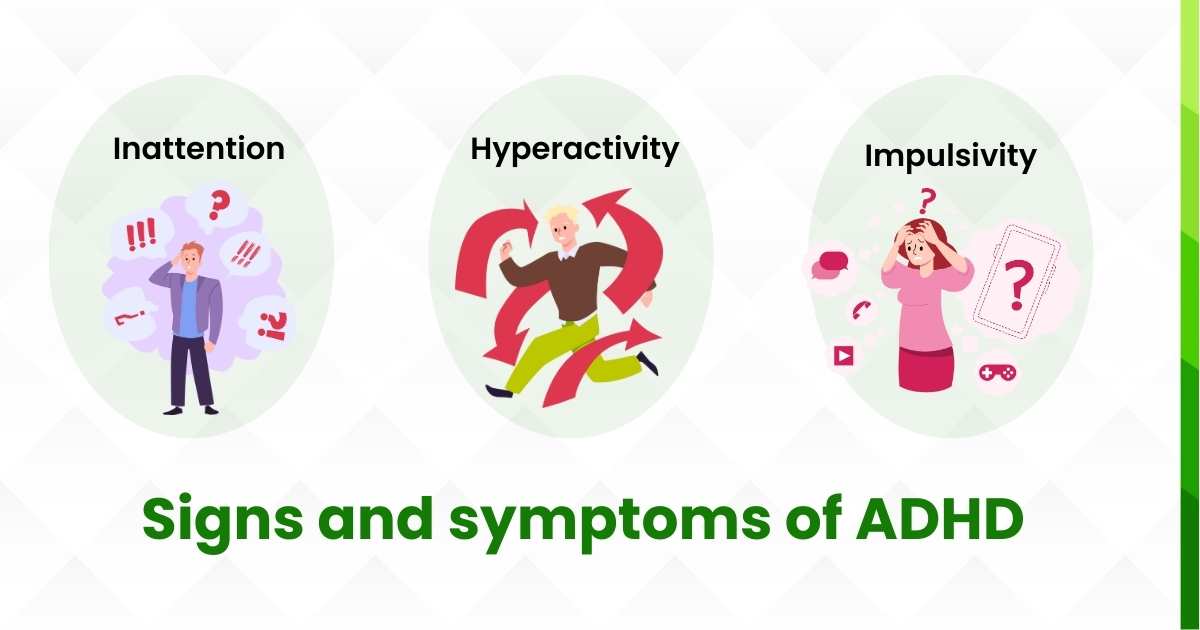
ADHD manifests through a range of behaviours, primarily involving inattention, hyperactivity, and impulsivity.
- Inattention: Difficulty focusing, easily distracted, trouble organizing tasks, forgetfulness in daily activities.
- Hyperactivity: Constant movement, fidgeting, inability to stay seated, excessive talking.
- Impulsivity: Interrupting others, difficulty waiting for turns, acting without thinking, making hasty decisions.
The severity of these symptoms varies between individuals, and they can interfere with daily functions at home, school, and work.
How is ADHD Diagnosed?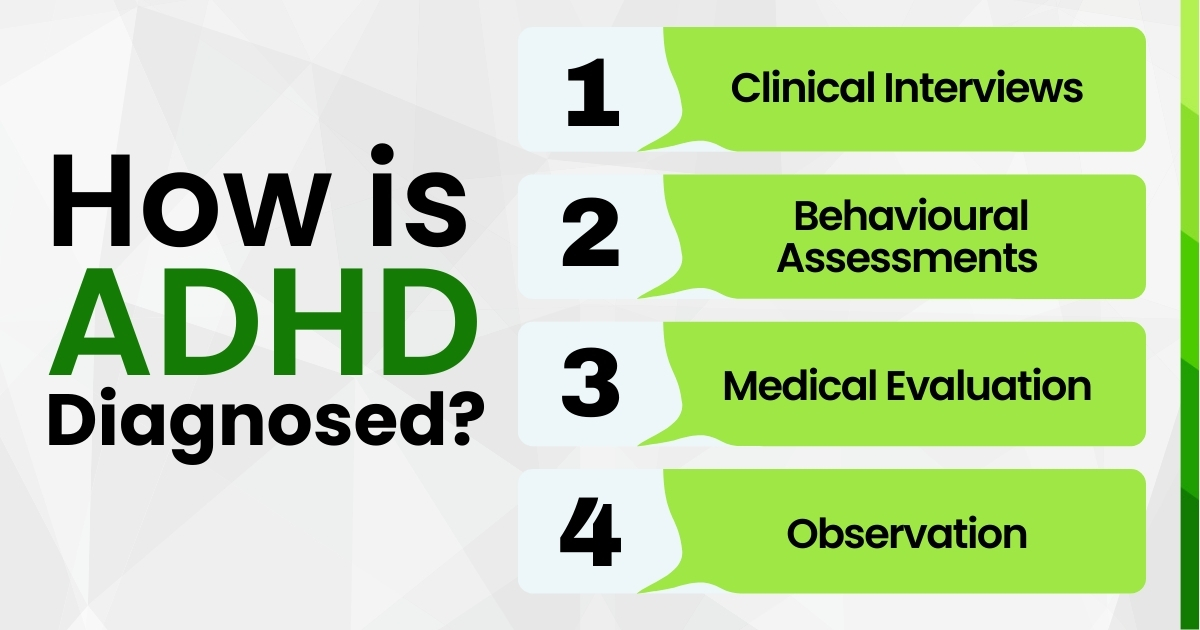
Diagnosing ADHD involves a comprehensive assessment by a healthcare professional, typically a psychologist, psychiatrist, or pediatrician.
The process to get ADHD medication in Australia includes:
- Clinical Interviews
Obtaining information about the individual’s behaviour pattern from close contacts (e.g., parents, teachers).
- Behavioural Assessments
Assessing symptoms using standardized rating scales and questionnaires.
- Medical Evaluation
Eliminating other medical conditions that could mimic ADHD symptoms.
- Observation
In rare cases, observing a patient’s behaviour directly.
A diagnosis is made by following the guidelines outlined in the Diagnostic and Statistical Manual of Mental Disorders (DSM-5).
Traditional Treatments For ADHD
Traditional treatments for ADHD primarily involve a combination of medications and behavioural therapies to manage symptoms, but no natural treatment for ADHD.
Stimulant Medications include drugs like methylphenidate and amphetamines, which are widely used in Australia and globally as a first-line treatment for ADHD.
Non-stimulant medications are used for individuals who cannot tolerate stimulants. Medications like atomoxetine or guanfacine are often prescribed.
Cognitive-behavioural therapy (CBT) and behaviour management strategies are also commonly used to help individuals develop coping mechanisms and improve organizational skills.
Conventional treatments aim to reduce ADHD symptoms, although responses can vary, and some people may experience side effects.
Medicinal Cannabis as a Treatment for ADHD
A potential natural treatment for ADHD is medicinal cannabis, which contains two primary components: THC and CBD, which are psychoactive and non-psychoactive, respectively.
THC helps in reducing hyperactivity, though it can cause side effects like altered perception. CBD, on the other hand, is often highlighted for its calming effects, helping to manage anxiety and improve focus without the “high” associated with THC.
Individuals have reported that medicinal cannabis helps them manage ADHD symptoms holistically. However, research is still ongoing, and the efficacy remains debated in the medical community. We recommend you speak to a professional who knows your personal case history before you switch over to holistic medicine for ADHD.
Potential Benefits of Medicinal Cannabis for ADHD
Researchers are exploring medicinal cannabis as a potential natural treatment for ADHD symptoms, with several potential benefits such as:
- Symptom Management
CBD is known to help manage core ADHD symptoms like inattention and hyperactivity as it is thought to have calming effects, helping individuals focus and reduce impulsive behaviour.
- Improved Focus and Cognitive Function
Early studies suggest that CBD enhances focus and cognitive function in some individuals with ADHD by calming the mind. It also aids in task completion and concentration, though more research is required.
- Natural Alternative to Traditional Medications
Medicinal cannabis is being viewed as a natural treatment for ADHD, offering a viable alternative for those who experience side effects from ADHD medication in Australia.
In contrast to traditional ADHD drugs, cannabis offers a more holistic approach. However, long-term effects and overall efficacy remain to be determined.
Risks and Side Effects of Medicinal Cannabis for ADHD Treatment
Medical cannabis has the potential to treat ADHD symptoms, but it’s no magic pill, as it also carries certain risks and side effects.
Common Side Effects Of Medical Cannabis For ADHD
People with ADHD may experience cognitive impairment, mood changes, dizziness, and anxiety from medical cannabis, primarily when THC is used.
- Long-Term Risks Of Natural ADHD Treatment
Medicinal cannabis may reduce cognitive abilities, cause memory problems, and change mood regulation if used long-term. It can also negatively impact cognitive function over time, especially in younger users, causing negative outcomes.
- Risks Related to Dependency
The use of cannabis regularly can lead to dependence, especially when THC is used. People may become tolerant, requiring higher doses, which increases the risk of addiction.
- Interactions with Other Medications
Medicinal cannabis may interact with conventional ADHD medications, such as stimulants or non-stimulants, potentially amplifying side effects like anxiety or reducing the effectiveness of treatment.
Medicinal cannabis can be a great natural alternative, but it’s essential to approach it cautiously, taking both its short-term and long-term effects into account.
Embracing the Neurodiversity Tapestry: Cannabis, ADHD, and You
The intricate dance between nature and neuroscience is the perfect end to this chapter on medicinal cannabis and ADHD. The cannabis plant, with its complex symphony of compounds, whispers tantalizing promises of focus and calm to those navigating the whirlwind of ADHD. Yet, like a double-edged sword, it carries both potential and peril.
For some, medicinal cannabis is the key that unlocks a door to clarity, offering respite from the cacophony of distraction. For others, it’s a siren’s call, leading down a path of unintended consequences. In the end, it all comes down to the delicate balance between hope and prudence.
There are no two people alike when it comes to ADHD. Let informed curiosity serve as your compass and self-compassion serve as your constant companion, whether you embrace traditional treatments, explore medicinal cannabis, or forge a path somewhere in between.


